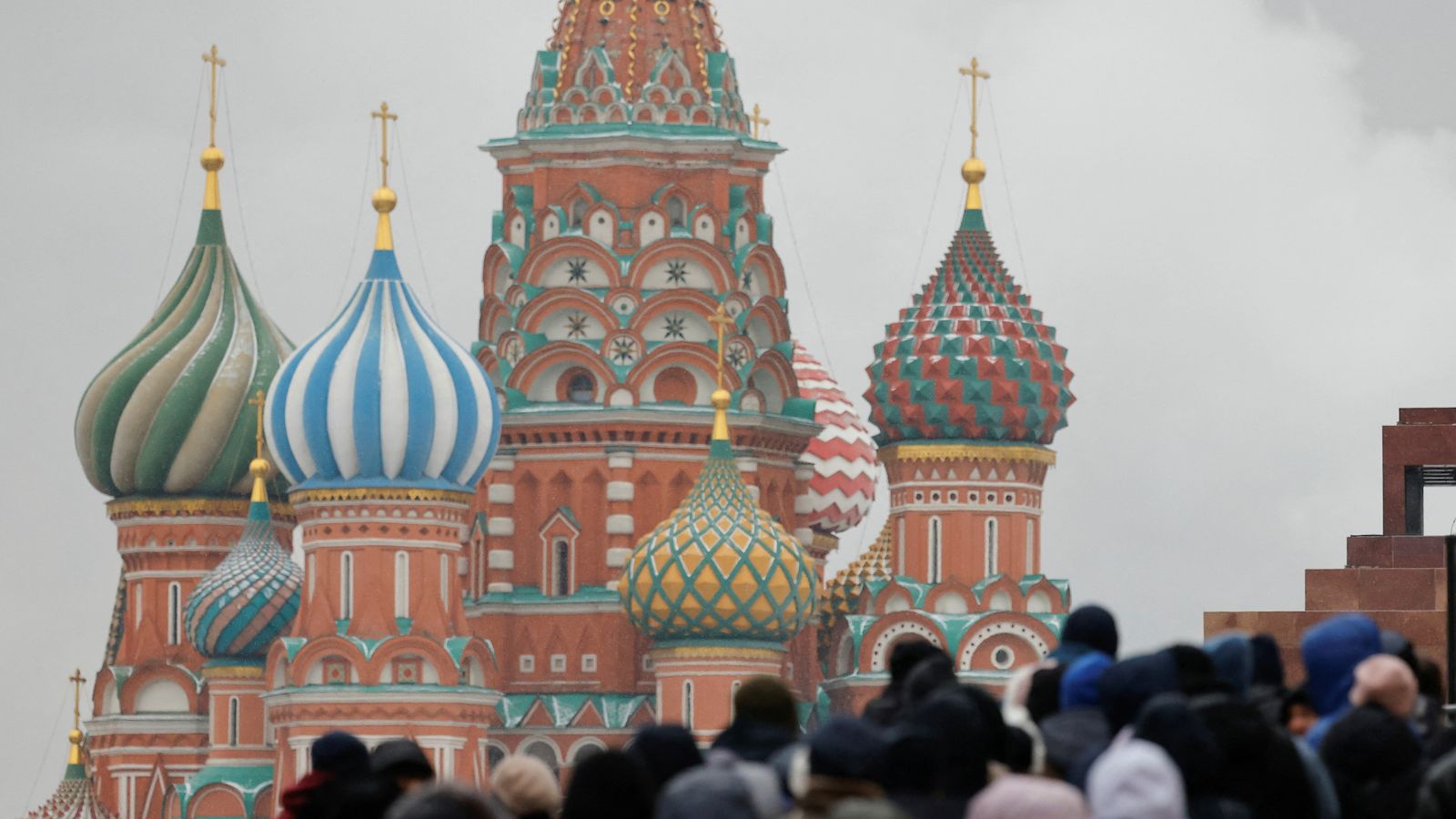By Ivor Bennett, Moscow correspondent
Today’s diplomatic expulsions come as no surprise.
Speaking to British and European officials here, the threat of being kicked out is very much baked-in to diplomatic life here, with many saying it’s a question of “when” they’ll be given their marching orders, rather than “if”.
That’s because there’s been a wider tit-for-tat exchange of expulsions that has been going on between Moscow and London for a number of years now, ever since the Skripal poisoning in Salisbury in 2018.
These latest expulsions can be seen as part of that.
But why now?
I think it’s no coincidence that it comes only a matter of days after three Bulgarian nationals in the UK were convicted of spying for Russia.
It also comes amid this apparent rapprochement between Washington and Moscow.
That shift in relations with the US has elevated the UK to the role of public enemy No 1 here, and these latest expulsions are a way of reinforcing that status.
The camera crews from Russian state media were waiting for the British embassy representative when he arrived at the foreign ministry this morning after being summoned.
“When is Britain going to stop with the violations?” one reporter asked, in footage that will no doubt be splashed all over the news bulletins here.
It’s how the Kremlin shapes public opinion – casting Britain as the enemy, out to attack Russia.
But even if it’s not surprising, the expulsions are still significant in the sense they will be disruptive, both on a professional level and a personal one (for the diplomat whose spouse was sent home).
The British embassy here is already operating on a vastly reduced headcount as a result of all the expulsions.
And although the diplomat will likely be replaced in the not-too-distant future, any kind of depletion – albeit temporary – makes a difficult job even harder.
